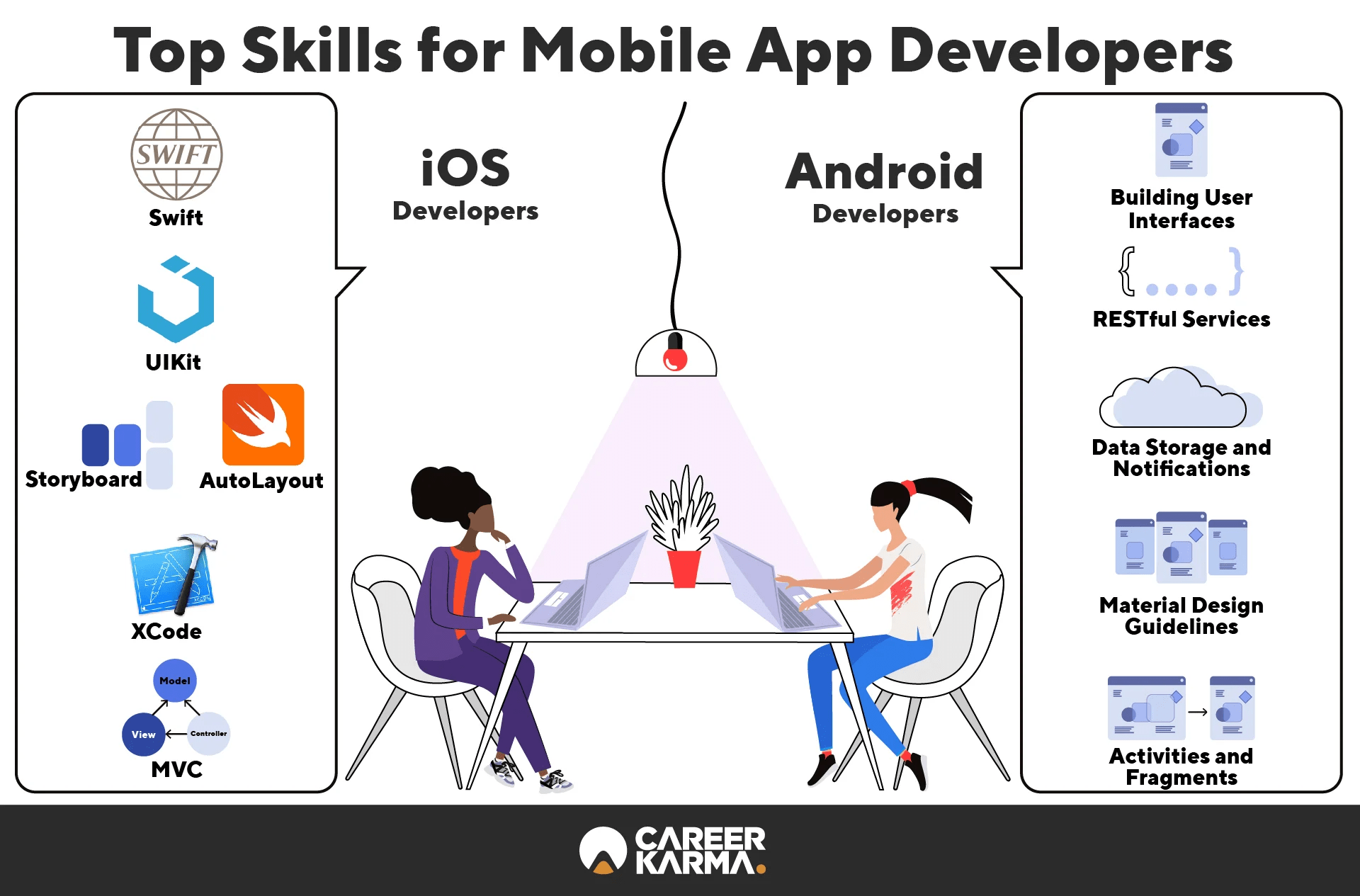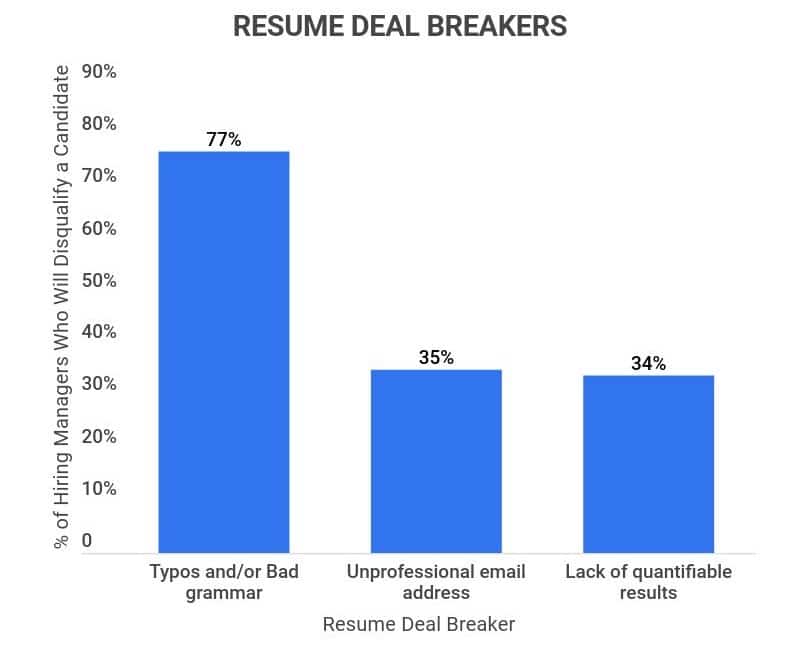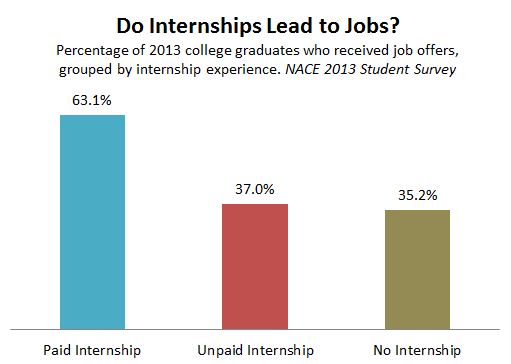The future of the Internet is on mobile. New apps emerge every day for entertainment, shopping, business, health, and anything else you can imagine.
If you’re a recent IT graduate, you might be curious about mobile app development as a career path. With an average salary of £54,000 and tremendous demand, it’s an appealing prospect. But how do you get started? Let’s look at some of the first steps you can take toward becoming a developer.

What Does an App Developer Do?
An app developer is a kind of software engineer. App developers design, create, build, and test apps for computers, smartphones, smartwatches, and tablets.
Developers work as part of a team, generating app ideas for the public or specific clients. Increasingly, businesses are using apps and cloud-based software as tools to optimize their services, for example, software to start a referral program.
An app development team consists of developers, engineers, and other colleagues. The size of the team depends on the scale of the project. Teams may also work alongside other experts like graphic artists or data scientists to help inform their products.
Usually, the team is headed by a project manager. There should also be at least one user experience (UX) designer and quality assurance (QA) engineer. QA engineers work with UX designers to deliver a smooth and streamlined user experience.

There are three main types of app development: desktop apps, web apps, and mobile apps.
Desktop apps run on computers or laptops. They run offline and are designed to be used by organizations and workplaces. Desktop apps are user-friendly and reliable. Importantly, they are more secure than online or cloud-based apps, as they are less susceptible to data breaches.
However, desktop apps need to be downloaded onto each computer of employees in an office. They also install updates frequently, which can be inconvenient.
Web apps run in your web browser, which is a fantastic advantage, as it is accessible from anywhere without the trouble of downloading and installing files. It provides a cheaper solution for some offices. For example, call centres may use auto dialling software which stores data on the cloud. Any updates do not affect users as much as desktop apps because they can be uploaded to the server.
Mobile apps are ubiquitous. Nowadays, the word “app” is synonymous with mobile apps. Whether you use Android or Apple, our smartphones have increasingly become multipurpose handheld organizers.
Why Become an App Developer?

Mobile apps are highly lucrative software products, and their popularity shows no sign of slowing down. Mobile app developers are in such high demand that job security is nearly guaranteed.
For a new graduate or an IT specialist looking for a career change, mobile app development is an obvious choice. If you’re creative, curious, and enjoy the satisfaction of problem-solving, mobile app development might be your ideal career.
What Skills Do I Need?
For a career in app development, you’ll need technical and soft skills.
Soft Skills
Creativity: Design is a crucial aspect of app development. You need imagination and vision to be able to build.
Attention to detail: Tiny errors can have disastrous consequences in coding. You need a keen eye and plenty of patience for many rounds of rigorous testing and fixing bugs.
Communication: You’ll be working with other developers, engineers, project managers, and possibly a QA agency, communicating verbally and through text. You’ll need to be able to give and collect feedback and ensure your work complements that of your teammates.
Project management: Deadlines are a huge part of any software development program. You’ll work with project managers to create a timeline for your app, including internal deadlines and a final deadline for the delivery of your product.
Problem-solving and adaptability: If you are easily discouraged, then you may find the process of testing and fixing bugs strenuous. However, if you are solution-oriented and can maintain a positive attitude during development, you may be a good fit for this role.
Technical Skills
The technical skills you require will depend on whether you choose to build software for Android or iOS.
First and foremost, you will need knowledge of programming languages. iOS developers will need to know about Swift and Objective-C, the main languages used to develop iOS apps.
iOS developers also should have familiarity with UIkit, a framework for designing user interfaces that help you create central components in iOS applications, like haptic touch control and animation.
Finally, they should learn to use XCode, Apple’s integrated development environment for iOS.
Android developers will use different programming languages: primarily Java, Kotlin, and XML. They also require a slightly different skill set.
Android developers must understand Google’s Material Design framework. Material Design is a design system created by Google in 2014. It helps create a beautiful, bold user interface for apps.
Lastly, Android developers need to know how to manage data and notifications on an Android device. They need to understand how information is stored, updated, and deleted on each device.

Of course, you can take your first steps in mobile app development without having every one of these skills in place. Skills can be honed over time with experience and effort. If you aren’t intimidated by the learning curve, you should try it.
Become a Mobile App Developer in Five Steps
Choose your platform
Which mobile platform do you want to work with? iOS, Android, or perhaps a smaller alternative platform, like Sailfish or Tizen?
iOS and Android are the most popular platforms, so familiarity with either is a massive advantage in the job market. As a beginner, you should choose a single platform until you gain the knowledge and confidence to diversify.
iOS is easier to learn. It has a variety of well-designed tools to help you. Xcode provides a smooth and intuitive experience for developers. Screens can be designed with an easy drag-and-drop interface.
Additionally, Apple has a strict set of standards that your app must comply with to be published in the App store. It can create difficulties when you want to deliver your product. On the other hand, their guidelines provide a helpful structure.
Android is less convenient. It is vast and complex, comprising thousands of different devices and vendors. Its integrated development environment software options are less user-friendly than Xcode.
You will need to code in XML for screen design. This is more technically difficult but gives you a better understanding of how an operating system works, which is beneficial for your long-term journey as a learner.
Similarly, Android is flexible, with fewer restrictions than iOS. It allows for freedom and creativity and can make you a better coder.
To summarise, although the iOS and Android skillsets overlap, your platform affects everything: the project scale, the style of coding, what to expect from QA team lead, and project management. Choose wisely.
Do your training
Before seeking out work, learn how to program. There are a wide variety of resources online that teach coding. It’s possible to start a career as a self-taught programmer but learning to code without any support is challenging.
The key advantages of studying programming at university include advice from experts and your peers. You’ll be able to gain industry knowledge and seek opinions on everything from whether QA tester vs cyber security is better for data protection to whether you should use Buildfire or Flutter to build apps.
A university qualification impresses employers. It’s strong evidence you’re hardworking, reliable, and have a thorough understanding of the field. Plus, studying gives you experience managing your time and working to deadlines.
If you choose to study at a university, you could work towards a Diploma of Higher Education or a Bachelor’s.
A Diploma of Higher Education is a two-year course of study geared towards professional practice. As many DipHe courses have a narrower focus, they can help you achieve a firm foundation for your career in a shorter period.
Bachelor’s degrees take three or four years and are a significant investment of time and resources.
As an alternative, many institutions offer coding boot camps. They won’t turn you into an expert overnight, but they can give you a solid introduction to the industry.

Create a portfolio
If you have little or no work experience, you need a portfolio. Portfolios give employers insight into who you are and show that you have coding skills.
Portfolios can also be shared through LinkedIn, Twitter, or other social media platforms, allowing recruiters and employers to find you rather than reaching out yourself.
The goal of your portfolio is to convert an idle visitor into an active one by getting in contact with you. Your portfolio must include:
Bio. Who are you? How did you get into programming?
Contact details and socials. Add both your email and phone, if you don’t mind your number being available to view on the Internet. Include links to LinkedIn or anywhere else an employer may want to contact you.
Technical skills. List skills that are relevant to the job you want.
Recognition. If you have any notable career achievements, highlight them here.
Your work. These can be professional or personal projects. Add links or screenshots. Upload your code to a platform like Github. Make sure you also include some context about your projects and how your code was used.
Write your resume

Like any other job, you will need an outstanding resume to secure the position. However, if you’re applying to jobs online, there’s a good chance your CV will be relegated to the slush pile before anyone has even seen it.
Here are our best tips for a CV that will land you an interview.
Keep it clear. Ensure you display your name in a large, legible font, and your contact details are prominently displayed.
Keywords. If a CV doesn’t pass online keyword filters, a recruiter or hiring manager may not even open it. Use the same language you see in the job listing, including stylisation e.g., acronyms, and punctuation. Avoid using generic keywords, though. Tailor your CV to each job application.
Keep it short. Your CV need not tell your life story. You should be able to fit all the relevant information on one page.
Emphasise technical skills. You can talk about your soft skills in the cover letter or the interview. Recruiters don’t search for phrases like “team player” or “highly motivated,” so they are ultimately just filler on a CV.
Include personal projects. If you don’t have a lot of previous work experience in tech but are hoping to land an internship or first job, then talking about your programming-related projects is crucial. It displays genuine passion and the ability to use your coding skills.
Get experience
After polishing your portfolio and CV, it’s time to apply for some jobs.
As a beginner, your main options for mobile app developer roles will be volunteer positions and internships. It may feel discouraging, especially if you have been working for a while and are hoping to change your career path, and you may have to find a source of side income. However, it’s a necessary step.
Apply for as many internships as possible, and don’t be afraid to aim high. Big-name companies may take a chance on you if you display real passion and flair.
When it comes to internships, employers don’t expect you to arrive knowing everything. You’re there to learn, so consider learning from the best.

And… Lift-off!
Now you know all you need to start your new career! Alongside virtual reality, mobile app development is one of the fastest-growing market segments in tech. Becoming a developer sounds scary, but it’s no different from setting out on any other career path. Consider using some of the most popular mobile app marketing strategies to promote yourself or gain an advantage on the business side.
Key takeaways: choose your platform, attend a boot camp to enhance your coding skills, create a killer portfolio and CV, and start applying. Take it one step at a time, and soon you’ll be close to making it in one of the most exciting and current areas of the tech industry.
Guest writer:
Emily Rollwitz is a Content Marketing Executive at Global App Testing, a remote and on-demand app testing company helping top app teams deliver high-quality software through demand testing, anywhere in the world. She has 5 years of experience as a marketer, spearheading lead generation campaigns and events that propel top-notch brand performance. Handling marketing of various brands, Emily has also developed a great pulse in creating fresh and engaging content. She’s written for great websites like Airdroid and Shift4Shop. You can find her on LinkedIn.
Share this article
Popular posts
Register now with StudentJob
Do you want to be kept up to date on the latest jobs for students? Register for free on StudentJob.
Register



